You may also be interested in

Communication barriers to negotiation: Encountering Chinese in cross-cultural business meetings
When two negotiating parties from different cultural backgrounds attempt to communicate, the potential for disagreement and misunderstanding is great. People from other cultural backgrounds, especially from the West, often find the behaviour of Chinese negotiators strange and unintelligible. This paper examines communication barriers between Chinese, Australian and American negotiators.
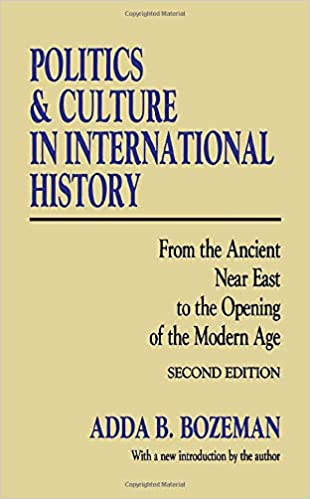
Politics and Culture in International History, 2nd ed
The message focuses on the interactions between politics and culture in international history, emphasizing its complexities and interconnected nature. It delves into how political decisions and cultural aspects influence each other, shaping the course of international relations.

Language and Diplomacy: Preface
Part of Language and Diplomacy (2001): In the preface below, Jovan Kurbalija and Hannah Slavik introduce the chapters in the book, and extract the general themes covered by the various authors.

Language and Diplomacy
Language and Diplomacy is a collection of papers presented at the February 2000 Second International Conference on Knowledge and Diplomacy and the January 2001 Conference on Language and Diplomacy. The book examines traditional aspects of language in diplomacy: diplomatic signaling, rhetorical patterns and ambiguities; as well as new issues raised by information technology. The publication is available online.
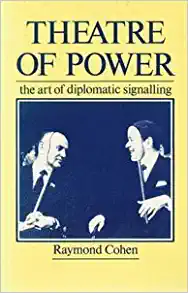
Theatre of Power: The Art of Signaling
Theatre of Power: The Art of Signaling discusses how strategic signaling plays a vital role in navigating power dynamics. Leaders can use various techniques to convey strength and influence, such as body language, attire, and other symbols. Mastering the art of signaling can help individuals assert dominance and command respect in various settings.
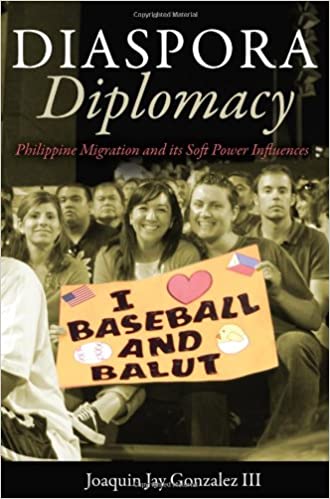
Diaspora Diplomacy: Philippine Migration and its Soft Power Influences
Diaspora Diplomacy: Philippine Migration and its Soft Power Influences is about the remarkable and untapped soft power that international migrants possess and how various sectors-from governments, NGOs, business, and international organizations- could tap this valuable resource to enhance global cooperation and development. With compelling stories from Filipina and Filipino migrants in San Francisco, London, Dubai, Dhaka, and Singapore comprising the large Philippine diaspora, this book illustrates how this widespread community performs numerous acts of public diplomacy, bridging the cultural ...

Multiculturalism for the masses: Social advertising and public diplomacy post-9/11
The terrorist attacks of 9/11 have brought an old problem into new focus: how to unite a population potentially divided along racial, ethnic and denominational fault lines. In the light of unprovoked and indiscriminate racist attacks on Muslim-looking minorities, multi-media advertising campaigns were mounted in several countries in order to quell racism and sell multiculturalism. This paper examines the use of advertising campaigns as a medium for public diplomacy, and focuses on the promotion of national unity out of cultural diversity.
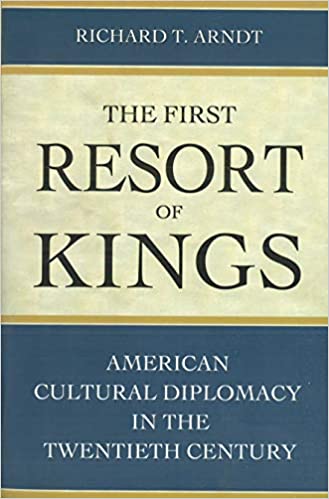
The First Resort of Kings: American cultural diplomacy in the twentieth century
The text discusses the significance of American cultural diplomacy throughout the twentieth century, highlighting its role as an essential tool for promoting American values and influence on a global scale.
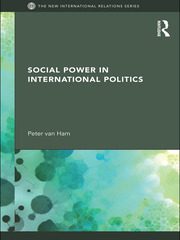
Social Power in International Politics
In "Social Power in International Politics," the author explores the impact of social power in shaping international relations. Social power encompasses the ability to influence others' behaviors, beliefs, and attitudes through norms, values, and identities. This form of power is not solely possessed by states but also by non-state actors and international organizations. Understanding social power dynamics is crucial for comprehending the complexities of global politics and how ideas and identities shape international interactions and conflicts.

Asymmetry of cultural styles and the unintended consequences of crisis public diplomacy
This essay examines how intercultural communication differences among nations can inadvertently magnify tensions during a crisis when nations rely on their own cultural style of public diplomacy to communicate with foreign publics. Beginning with posing the question of how American efforts to intensify its public diplomacy efforts resulted in declining support, public diplomacy is examined as a communication phenomenon, as opposed to a purely political phenomenon.

NETmundial Multistakeholder Statement
The NETmundial Multistakeholder Statement emphasizes the importance of a collaborative approach between stakeholders in addressing Internet governance issues. It highlights principles such as human rights, open standards, and transparent processes as key foundations for managing the Internet. The statement calls for shared responsibility, inclusivity, and diversity in decision-making processes to ensure a free, open, and secure cyberspace for all.
Making the “other” human: The role of personal stories to bridge deep differences
How do negotiators and other conflict resolution practitioners from different cultures create shared understanding? Is shared understanding enough to bridge deep differences?

Cultural content on the websites of diplomatic systems
The text discusses the importance of including cultural content on diplomatic systems' websites to promote understanding and build relationships between countries.
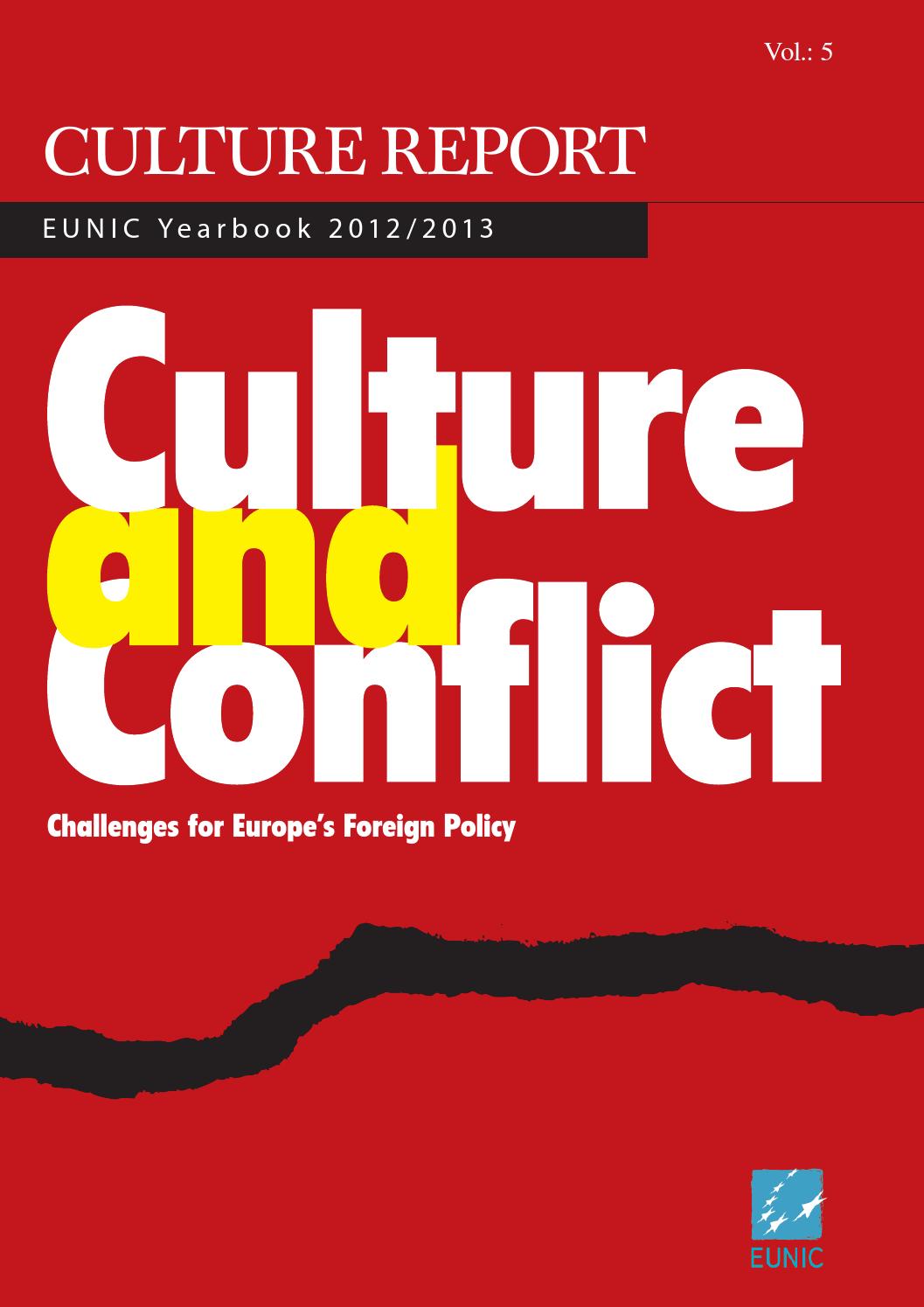
Culture and Conflict: Challenges for Europe’s Foreign Policy
The text discusses the challenges that Europe's foreign policy faces due to cultural differences and conflicts.
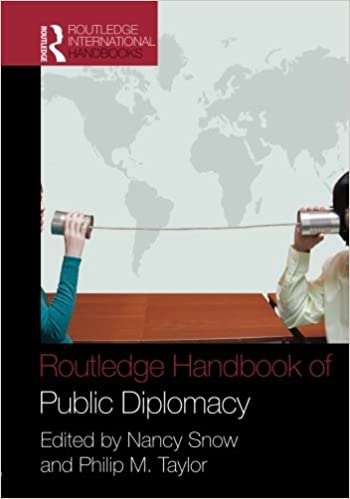
Routledge Handbook of Public Diplomacy
The Routledge Handbook of Public Diplomacy explores the field's evolution, challenges, and strategies in the modern interconnected world. It investigates the role of both state and non-state actors in shaping international relations through communication and cultural exchange, emphasizing the importance of building relationships and understanding diverse perspectives for effective public diplomacy efforts.
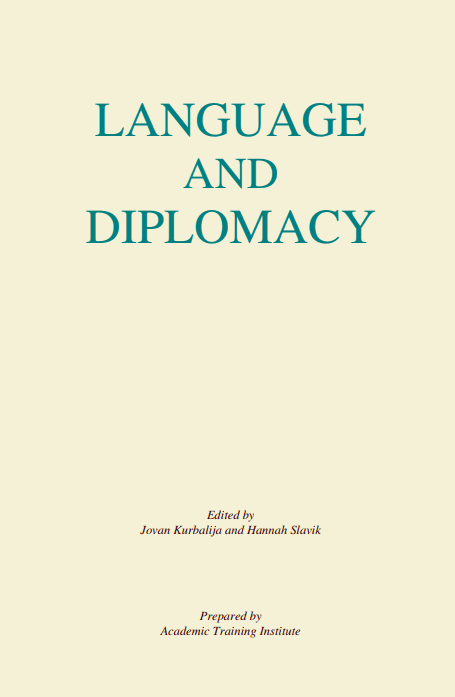
Language and Diplomacy
Part of Language and Diplomacy (2001): Dr Abu Jaber brings a cross-cultural element to the discussion of language and diplomacy, surveying the historical development of diplomatic language particularly in the Arab world. However, he points out that the very idea of a language of diplomacy "is that it should not be culture-bound but an attempt at transcending such boundaries to create a quasi neutral vehicle of exchange." Abu Jaber notes that the language of diplomacy has to this date not been successful in resolving violence between nations and peoples. Yet he believes that solutions to violen...

China and Public Diplomacy: A CPD Reader
China and Public Diplomacy: A CPD Reader provides an overview of China’s approach to public diplomacy, an examination of China’s cultural diplomacy, its nation branding during the 2010 Shanghai Expo and media depictions of China. The blogs, articles, reports and essays featured in the eBook were originally published by CPD between October 2009 and August 2012.

Language and negotiation: A Middle East lexicon
Part of Language and Diplomacy (2001): Professor Raymond Cohen writes that "when negotiation takes place across languages and cultures the scope for misunderstanding increases. So much of negotiation involves arguments about words and concepts that it cannot be assumed that language is secondary." With numerous examples of the culturally-grounded references, associations and nuances of certain words and phrases in English and the Middle Eastern languages (Arabic, Turkish, Farsi and Hebrew), Cohen introduces his project of developing a negotiating lexicon of the Middle East as a guide for condu...

Language, culture and the globalisation of discourse
To explore the idea that word use is culture-bound, this paper examines the English words culture and globalisation, to discover how they are used, and how they have come to have certain meanings or represent certain ideas.
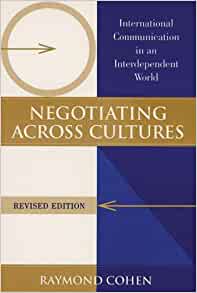
Negotiating across cultures
The text is about the importance of understanding cultural differences in negotiations. It highlights the need for awareness of varying communication styles, etiquette, and values when engaging in cross-cultural negotiations. By acknowledging and respecting cultural nuances, negotiators can build trust, establish rapport, and achieve successful outcomes in diverse settings.

Contemporary Diplomacy: Representation and Communication in a Globalized World
The text discusses how diplomacy has evolved in the present globalized world, focusing on representation and communication.

Intercultural communication in Macedonia: Different people, different stories
This papers examines how the Macedonians and the Albanians live in Macedonia. How do they communicate? Is there friendship everywhere? How do the two nations, live together, how do they communicate. The answer to this question coming from two different people may reveal two opposite viewpoints, the optimistic and the pessimistic. This paper focuses on communication between the Macedonians and the Albanians, considering that these are the two largest ethnic groups in the Macedona and even more, that these two groups were involved in the military conflict in 2001.
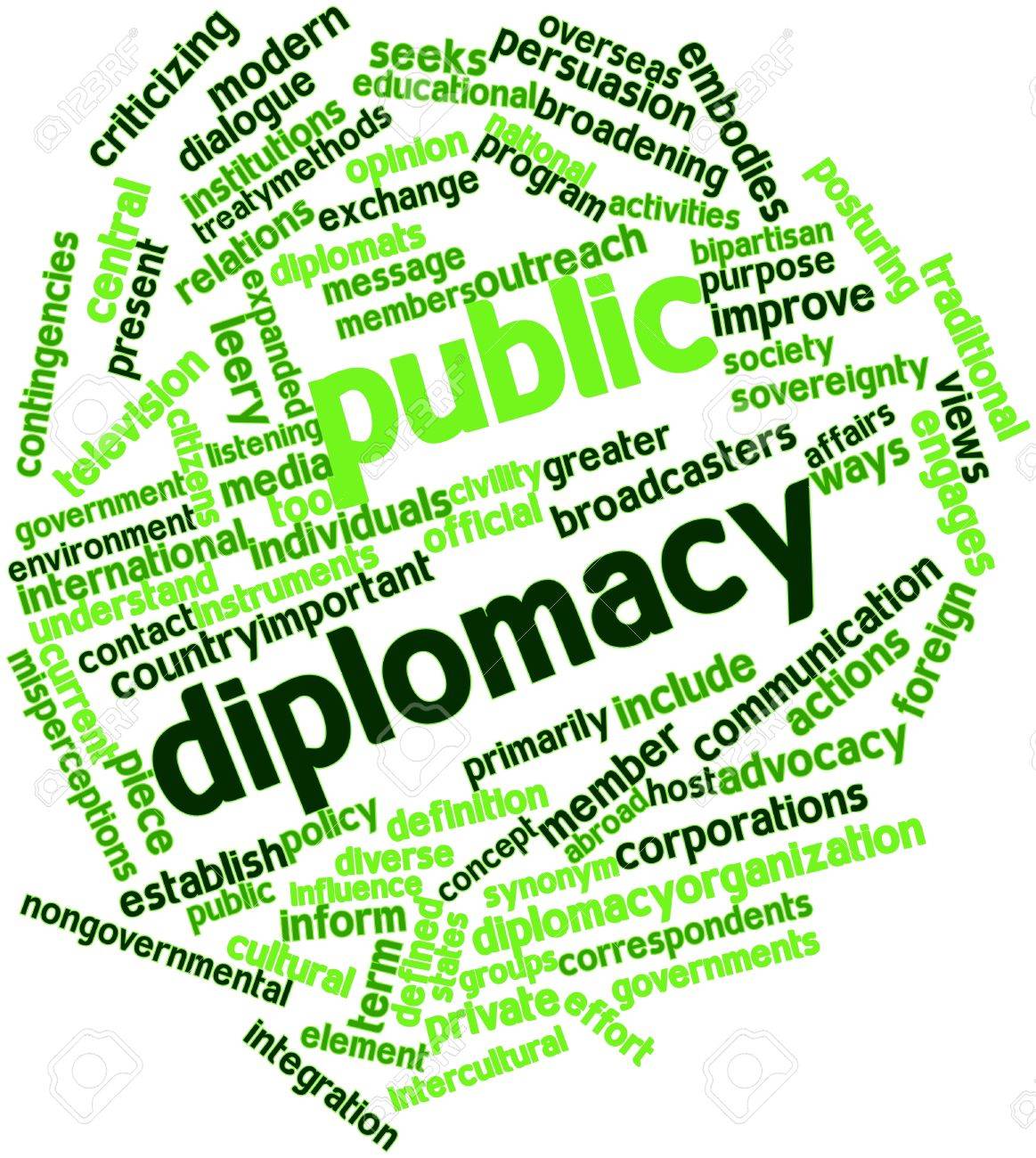
Public diplomacy: Taxonomies and histories
The text discusses public diplomacy, providing taxonomies and historical perspectives.

European challenges to cross cultural borders
The text addresses the challenges faced by Europeans when navigating cross-cultural boundaries.
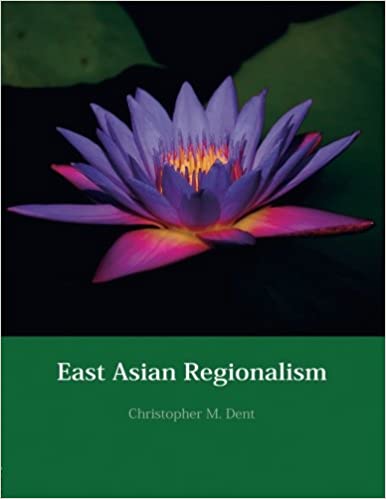
East Asian Regionalism
The text examines the dynamics and evolution of East Asian regionalism, analysing the various economic, political, and social factors influencing regional integration efforts in the East Asian context.

Hypertext in diplomacy
Part of Language and Diplomacy (2001): The final paper in this volume, by Jovan Kurbalija, is based on the experience of ten years of research and development work in the field of information technology and diplomacy. Kurbalija explains the relevance and potential of hypertext software tools for the field of diplomacy.
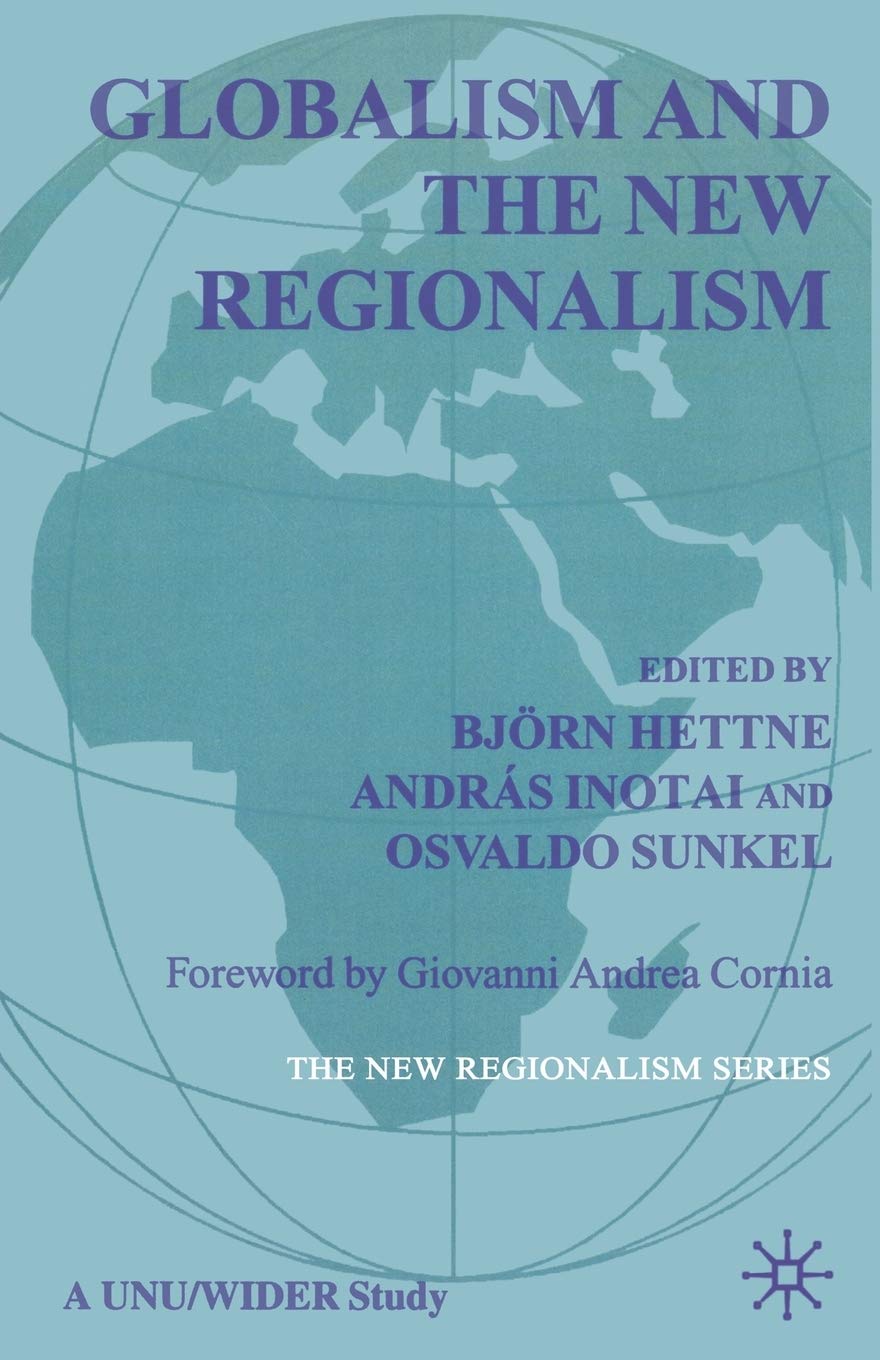
Globalism and the New Regionalism
The text discusses the impact of globalism on the new regionalism trend, emphasizing how regions are increasingly important economically, politically, and culturally in the global landscape. The author explores how global interconnectedness has led to a rise in regional cooperation and integration as a response to globalization, highlighting the various ways in which regions are shaping international relations and global governance.
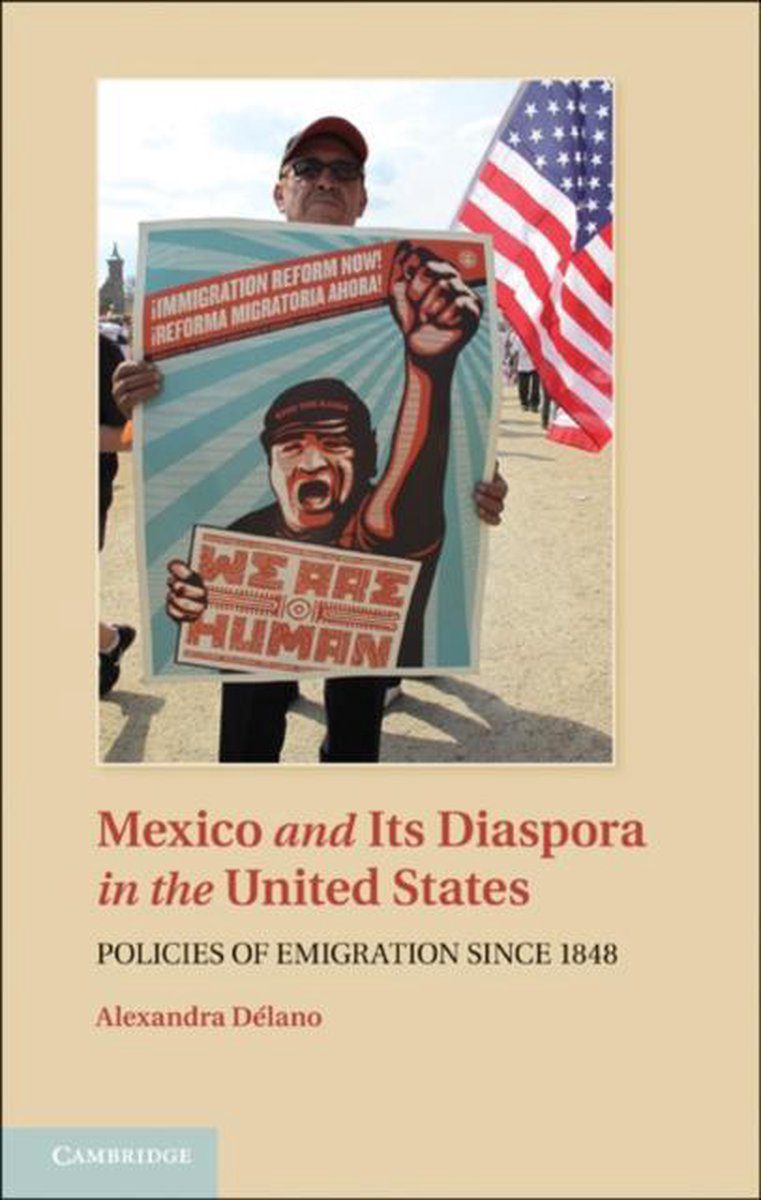
Mexico and its Diaspora in the United States: Policies of Emigration since 1848
This book is unique in many ways and is different from other studies on migration and diaspora. Délano looks at migration from the perspective of a sending state, focusing on its role in the evolution of emigration policies, as they are shaped under diverse pressure. Spread over a period of over 100 years, the content is neatly divided into five distinct phases. A departure from other studies, the emigration process is seen through the prism of a social scientist and not that of an anthropologist, as is the standard pattern. Its focus is on Mexican emigration policies, yet the same are not se...
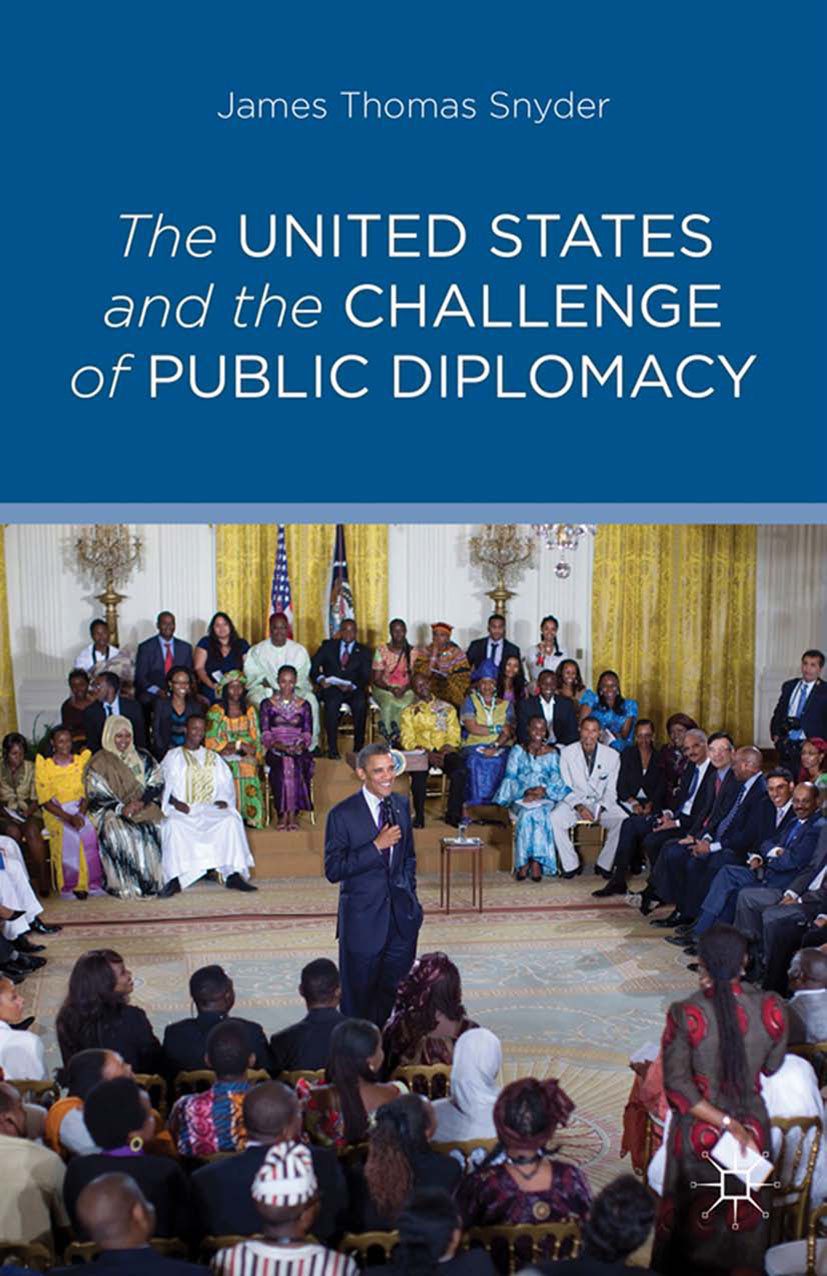
The United States and the Challenge of Public Diplomacy
The United States faces challenges in public diplomacy, influencing global perception, and understanding the perceptions of various audiences, necessitating a strategic and comprehensive approach to communication.

Defining development in the context of current realities
‘My personal knowledge reflects other cultures and types of people in Fiji and the Pacific. I live not only with one race but with many who have different cultural and traditional values.’ - Anju Mangal from Fiji

Diplomats as cultural bridge builders
Diplomats are people who are on the fringe somewhere, because they are either permanently living in or at least dealing with alien cultures, cultures with different values. The success of a diplomat depends on this brinkmanship because, on the one hand, they must remain credible with their superiors back home and, on the other hand, they must have access to the leaders in the country where they are posted. This paper discusses the role of diplomats as cultural bridge-builders.
The Clash of Civilizations
The Clash of Civilizations discusses the idea that cultural and religious differences will be the primary source of conflict in the post-Cold War world. The author argues that conflicts will arise along cultural fault lines, such as between Western and Islamic civilizations, rather than the political and economic divisions of the past. This perspective challenges the notion of a peaceful global community and emphasizes the importance of understanding and managing cultural differences to prevent future conflicts.
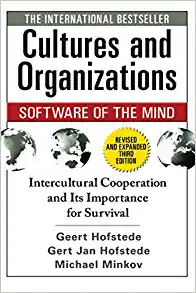
Culture and Organizations: Software of the Mind
This text explores the role of culture in shaping organizations and individuals' behaviors and beliefs. It explains how culture influences the way people act and interact within a specific group or society, serving as a mental software that guides thoughts and actions. Understanding cultural differences is crucial for effective communication and collaboration in diverse settings.

Lessons from two fields
A conversation between a diplomat and an interculturalist, combining real-life examples from the diplomatic field with intercultural theory.
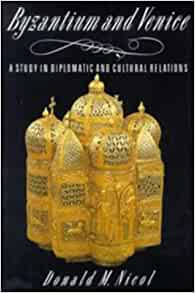
Byzantium and Venice: A study in diplomatic and cultural relations
This book traces the diplomatic, cultural and commercial links between Constantinople and Venice from the foundation of the Venetian republic to the fall of the Byzantine Empire. It aims to show how, especially after the Fourth Crusade in 1204, the Venetians came to dominate first the Genoese and thereafter the whole Byzantine economy. At the same time the author points to those important cultural and, above all, political reasons why the relationship between the two states was always inherently unstable.
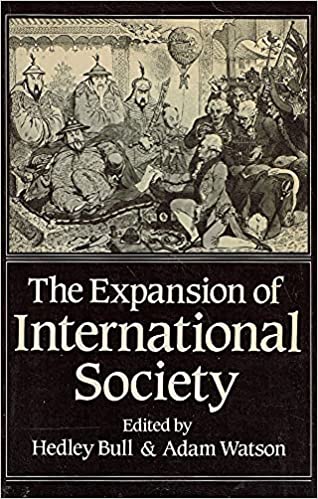
The Expansion of International Society
The text discusses the expansion of international society, highlighting the growth and interconnectedness of nations, cultures, and people globally. It emphasizes the importance of understanding and embracing diversity in order to foster cooperation and mutual respect on a global scale.
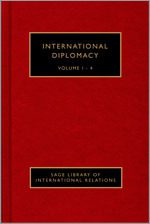
International Diplomacy Volume II: Diplomacy in a Multicultural World
The text discusses the importance of multiculturalism in diplomacy to achieve mutual understanding and cooperation among nations, emphasizing the significance of cultural sensitivity and respect in international relations.

The impact of cultural diversity on multilateral diplomacy and relations
Basic concepts mean different things in different cultures. In multilateral relations this means that looking at such a concept is always culturally biased. As a result, an interpretation according to one culture also tends to criticise different interpretations according to other cultures. This paper discusses how important it is that diplomats and politicians pay attention to and accept the fact of cultural diversity. If they do, they will understand the underlying causes of many conflicting attitudes and they may become more inclined to seek compromise and consensual approaches rather than ...

Think global, act local: Honorary consuls in a transforming diplomatic world
The paper explores the role of honorary consuls in trade, tourism, and investment promotion. It emphasizes the importance of extending consular coverage through honorary consuls, focusing on the significance of localities over national capitals in business and commerce. Selected nations are utilizing honorary consuls to boost their economies. The conclusion highlights research gaps regarding the effectiveness of honorary consuls in trade and investment promotion.

Multistakeholder diplomacy: Forms, functions, and frustrations
In the first part of the book, Brian Hocking, suggests the importance of seeing diplomacy in a context broader than that of the state system with which it is often associated. Hocking also explains how problems of interpretation and understanding, applicable to MSD as it is to other models, result from evolving patterns of diplomacy. Hocking also suggests that it is possible to recognise the intersection of two diplomatic cultures overlaying and informing one another, whose coexistence generates, simultaneously, creative and negative tensions.

On the importance and essence of foreign cultural policy of states
Foreign cultural policy is in itself vital for establishing long lasting and deep relations between countries in international intercourse. But what we should equally bear in mind is that it is important to preserve the variety and the diversity of cultures in our efforts to bring about global cultural communication. Uniform culture is not culture and cannot be communicated.
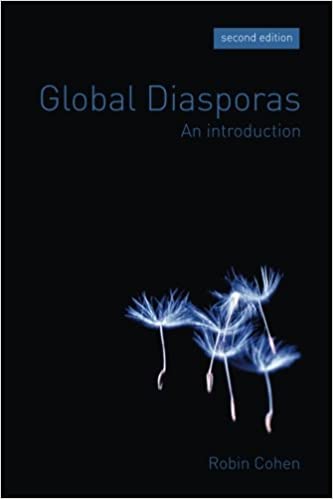
Global Diasporas: An Introduction
The text discusses the concept of diasporas, exploring how people are dispersed across the world while maintaining connections to their homelands. It examines the impact of globalization, technology, and migration on diasporic communities, emphasizing the complexity and diversity of diasporic experiences. Additionally, it highlights the significance of identity, belonging, and transnational connections within diasporas, shedding light on the dynamic nature of diasporic cultures.
The latest from Diplo and GIP
Tailor your subscription to your interests, from updates on the dynamic world of digital diplomacy to the latest trends in AI.
Subscribe to more Diplo and Geneva Internet Platform newsletters!
Diplo: Effective and inclusive diplomacy
Diplo is a non-profit foundation established by the governments of Malta and Switzerland. Diplo works to increase the role of small and developing states, and to improve global governance and international policy development.


